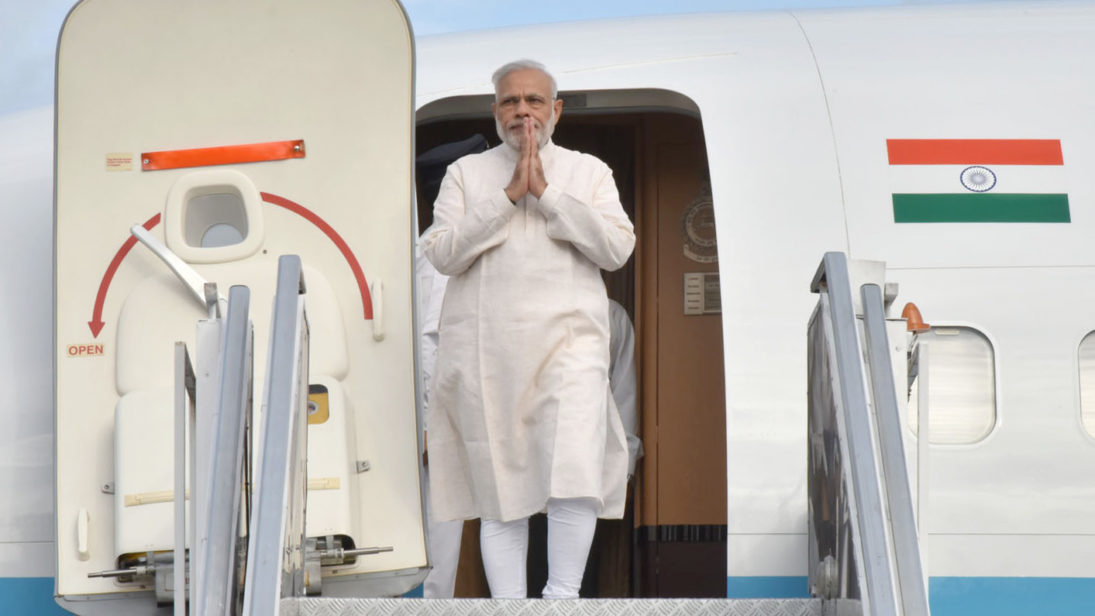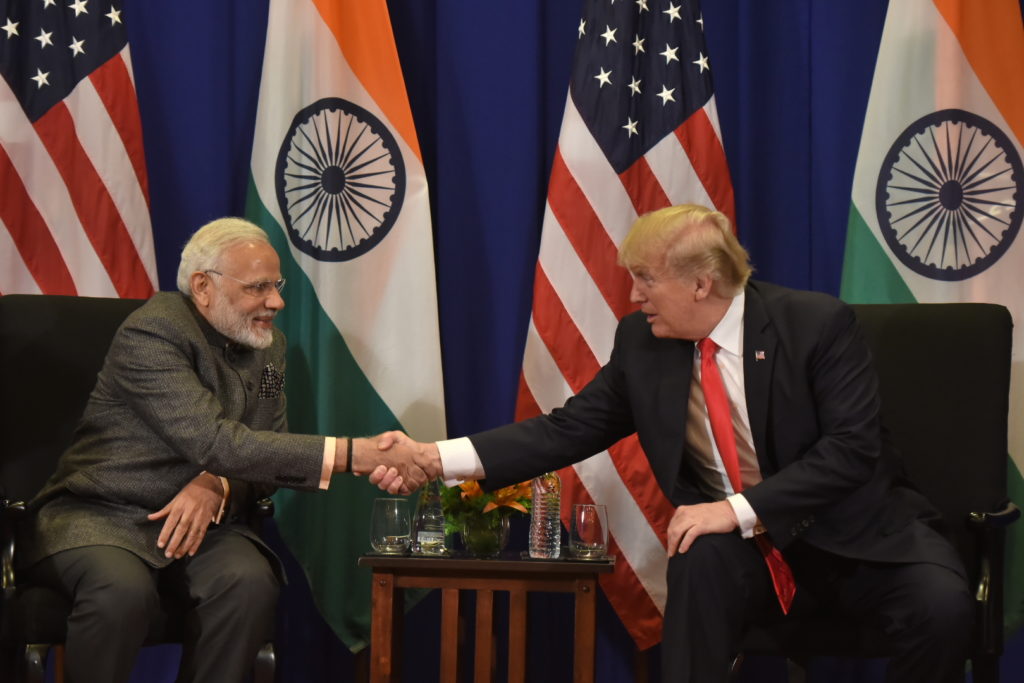
The Narendra Modi-led Bharatiya Janata Party (BJP) has scored another landslide in the Indian general elections, five years after it won by a huge margin in 2014. For the second successive time, the BJP achieved a simple majority on its own in the Lok Sabha, surpassing its tally of 282 in 2014 to win 303 seats (the BJP-led National Democratic Alliance won 353 of 542 seats, staking claim to form government). For Modi to have won the general election in a country with the size and complexity of India and having done so with a huge mandate twice in a row reflects a substantial change in India’s political milieu and aspirations. And this has implications for India’s external manifestations.
The strategic direction of a country is generally not at the mercy of periodic electoral outcomes. However, Modi’s foreign policy activism and outreach over the last five years have certainly led to a tangible change in how New Delhi interacts with the outside world. New Delhi’s diplomacy under Modi has shown a kind of swagger and can-do attitude, something not usually associated with Indian foreign policy. And with his return to power, his characteristic high-level personal diplomacy with world leaders and a focus on India’s immediate and extended neighborhood is likely to continue.
With questions being raised on India’s ability to shape preferences in the subcontinent, maintaining a ‘neighborhood first’ policy will remain a focus for Modi. In the last five years, India’s relations with its South Asian neighbors have gone through highs and lows, owing to the domestic political dynamics in these countries and due to their dispensation towards China’s economic largesse. Ties with Nepal, Sri Lanka, and the Maldives worsened due to their slide towards China but the Modi government was able to revive them by being nimble and pragmatic. However, sustained engagement is required to protect gains made in these countries.
For Modi to have won the general election in a country with the size and complexity of India and having done so with a huge mandate twice in a row reflects a substantial change in India’s political milieu and aspirations. And this has implications for India’s external manifestations.
Besides sporadic moments of optimism, India-Pakistan relations have not seen much of a breakthrough and the relationship has been particularly frosty post the Pulwama attack and the Balakot airstrikes. However, recent events such as Sushma Swaraj exchanging words with Pakistan’s foreign minister on the sidelines of a Shanghai Cooperation Organization meeting and Modi’s response to Prime Minister Imran Khan’s congratulatory message on his win suggest the tide may be changing. All eyes are on what Modi’s approach to Pakistan will be. Modi is also likely to put more mind and money into outreach to India’s extended neighborhood, and developing political and economic synergies with countries in Southeast Asia, Central Asia, and West Asia would continue to be a priority for the new government.
How India will manage its relations with China in both a bilateral and multilateral setting is likely to be a concern. Can the uneasiness in the India-China relationship be addressed by cooperative gestures towards Beijing or is the key to deter undesirable Chinese actions through a stronger partnership with the United States? The Indo-U.S. strategic partnership makes geopolitical sense in order to deter China’s unilateral activism but China’s geographic proximity to India, their unresolved border dispute, and the interdependent nature of their economic relationship complicates things for New Delhi. These are some questions and concerns that Modi and his new cabinet will have to grapple with. In addition, despite the positive atmospherics created by the Wuhan summit, China’s Belt and Road Initiative will continue to be a tangle in India-China bilateral ties. Can China forego India’s cooperation in this ambitious initiative and can India afford to sideline China in regional connectivity projects? New Delhi and Beijing will need to work this out together.

Modi also has his task cut out for him when it comes to handling great power relations, as tensions in the Sino-U.S. and U.S.-Russian relations reach new heights. As Washington’s relations with Beijing and Moscow go south, India can expect more U.S. prodding to counteract China’s rise in the Indo-Pacific region and be asked to choose between Russian and American weapon systems. It will not be easy for Modi to navigate this complex geopolitical landscape.
A successful Indian foreign policy would be geared towards developing a conducive external environment for sustained internal growth. Thus, New Delhi will take foreign policy decisions not because it wants to be in the good books of any country, but purely because it is in its national interest to do so.
To deal with these two problem sets, Modi may use a tool he has employed effectively in the past—his personal chemistry and established relationships with world leaders. While chemistry between leaders alone cannot be counted upon to bring substantial changes in bilateral relations, it does lend traction to key issues and eliminates policy paralysis. Whether it was the Wuhan summit with President Xi Jinping or the Sochi Summit with President Vladimir Putin, leadership-to-leadership communication has been a hallmark of Modi’s previous tenure and he is likely to continue utilizing such informal diplomacy to his benefit, as a toolkit of India’s foreign policy. A bilateral meeting between Modi and President Trump is on the cards at the G-20 in late June and this may be an opportunity for the two sides to solidify their Indo-Pacific convergences, discuss timely implementation of the designation of India as a major defense partner of the United States, and try to find ways to address economic issues that have recently come up between them.
As strategic analyst Ashley Tellis has argued, a successful Indian foreign policy would be geared towards developing a conducive external environment for sustained internal growth. Thus, New Delhi will take foreign policy decisions not because it wants to be in the good books of any country, but purely because it is in its national interest to do so. And as Modi does so, it will be instructive for him and his cabinet to think about the losses and gains of the last five years and identify areas of policy deficiency as well any shortage in implementation.
***
Image 1:Press Information Bureau, India
Image 2:MEAphotogallery via Flickr


